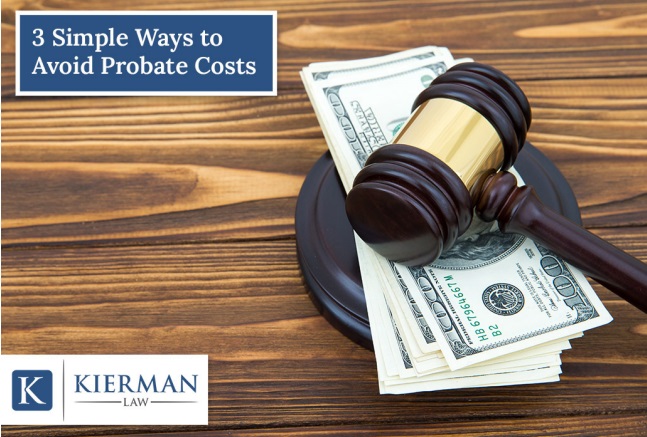The bad news:
When a deceased person’s estate (all of their money and property) has to go through probate, it can be subject to a variety of costs stemming from attorneys, executors, appraisers, accountants, courts, and state law. Depending on the probate’s complexity, fees can run into tens of thousands of dollars.
The good news:
Many of these probate costs can be reduced by avoiding probate. It’s really that simple. Here are three simple ways to reduce or eliminate costs by avoiding probate:
- Name a Beneficiary
The probate process only applies to those accounts or other property that are in your name at your death. By naming a beneficiary, these accounts and other property will be transferred to the named individual without any court involvement. Common beneficiary designation assets include life insurance, retirement plans, and real estate. - Create and Fund a Revocable Living Trust (RLT)
Once the revocable living trust has been created, and you have properly transferred the ownership of your accounts and property to the RLT by re-titling them into the name of the trust, you remain in charge of all legal decisions until your death as the trustee, and you retain the enjoyment of those accounts and property as the current beneficiary. After your death, your named successor trustee will manage and distribute your assets – according to your wishes. - Own Property Jointly.
Probate can also be avoided if the property you own is held jointly with a right of survivorship. Similarly to a beneficiary designation, joint ownership has the effect of automatically transferring the ownership upon your death. One type is joint tenancy with right of survivorship – the ownership simply transfers to other tenants upon your death.
Contact us to help you decide whether it makes sense to avoid probate in your particular case and, if so, the best way to do so.

